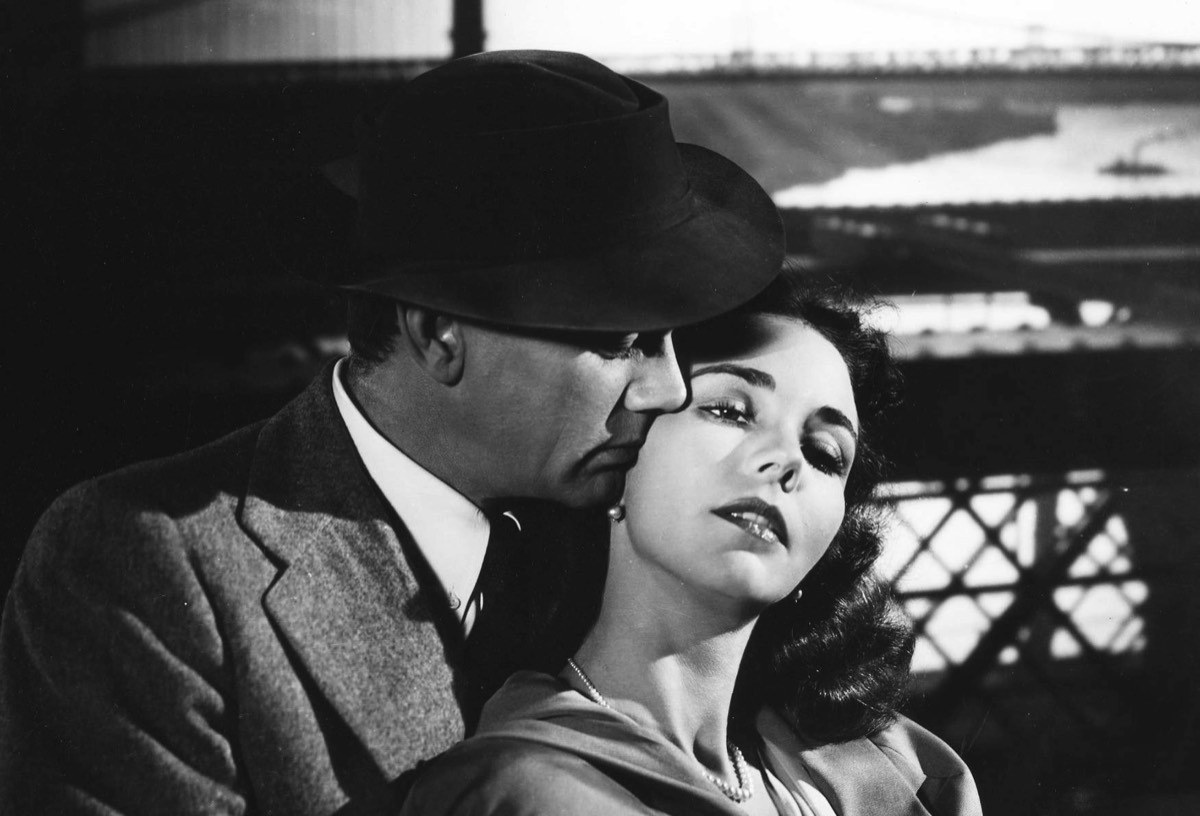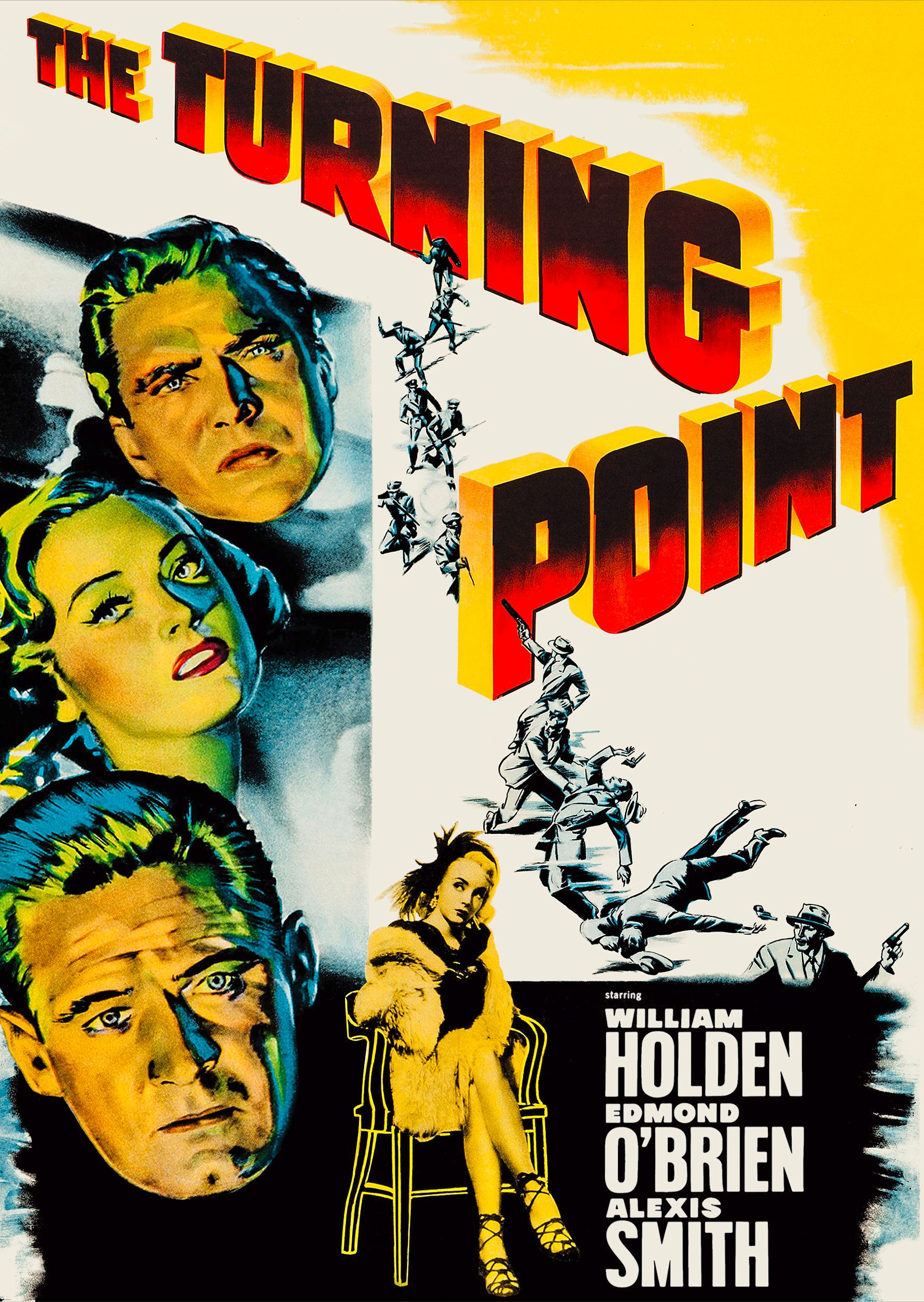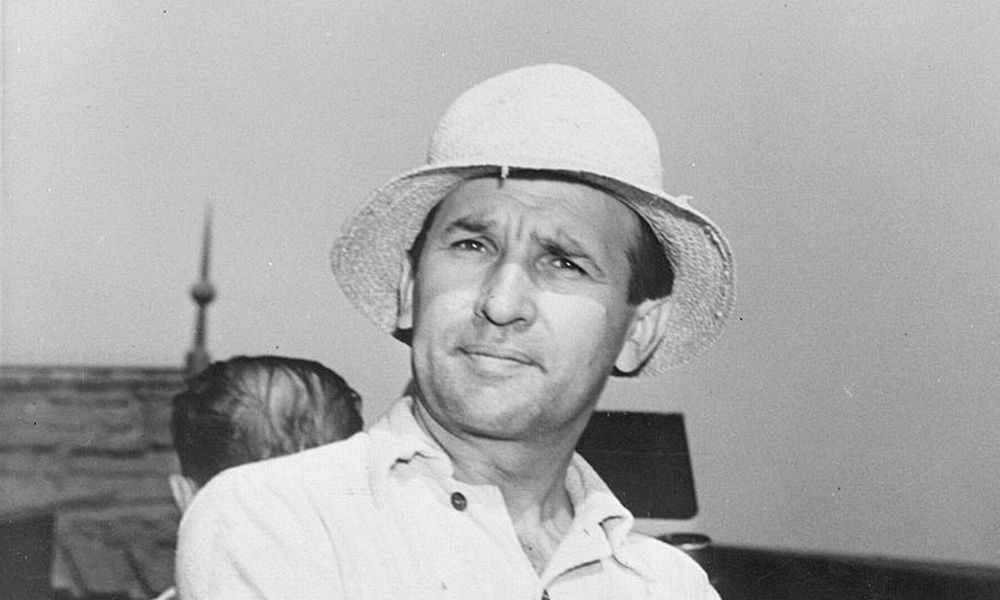"Though the director's filmography includes memorably dull biopics (Zola, Pasteur, Juarez and the discoverer of a cure for syphilis) his finest work reveals a flair for romanticism… Though a minor, erratic talent, Dieterle is deserving of more serious critical attention than he has so far received." - Geoff Andrew (The Director's Vision, 1999)
William Dieterle
Director / Producer
(1893-1972) Born July 15, Ludwigshafen am Rhein, Rhineland-Palatinate, Germany
50 Key Noir Directors
(1893-1972) Born July 15, Ludwigshafen am Rhein, Rhineland-Palatinate, Germany
50 Key Noir Directors
Key Production Country: USA
Key Genres: Drama, Romance, Melodrama, Romantic Drama, Crime, Biography, Period Film, Fantasy, Film Noir, Musical Drama, Medical Drama, Psychological Drama
Key Collaborators: Warren Low (Editor), Henry O'Neill (Character Actor), Hal B. Wallis (Producer), Hans Dreier (Production Designer), Victor Young (Composer), Joseph Cotten (Leading Actor), Henry Blanke (Producer), Tony Gaudio (Cinematographer), Paul Muni (Leading Actor), Joseph August (Cinematographer), Claude Rains (Leading Character Actor), Anita Louise (Leading Character Actress)
Key Genres: Drama, Romance, Melodrama, Romantic Drama, Crime, Biography, Period Film, Fantasy, Film Noir, Musical Drama, Medical Drama, Psychological Drama
Key Collaborators: Warren Low (Editor), Henry O'Neill (Character Actor), Hal B. Wallis (Producer), Hans Dreier (Production Designer), Victor Young (Composer), Joseph Cotten (Leading Actor), Henry Blanke (Producer), Tony Gaudio (Cinematographer), Paul Muni (Leading Actor), Joseph August (Cinematographer), Claude Rains (Leading Character Actor), Anita Louise (Leading Character Actress)
"Considering that the 1939 version of The Hunchback of Notre Dame is just about my favourite film, it is a bitter pill to swallow that its German director, William Dieterle, also made a fair percentage of outright clinkers, especially in his later years, his films from 1953 vying with each other for awfulness. But in the Warners years Dieterle's dark, Germanic nature was in full flight and he made some weird and wonderful variations on standard genres there before becoming immersed in the studio's passion for biopics." - David Quinlan (Quinlan's Illustrated Guide to Film Directors, 1999)
"William Dieterle seemed less interesting than Michael Curtiz in his (Dieterle's) Warners period and less interesting than Billy Wilder in his (Dieterle's) Paramount period... But Dieterle was around on the set when many interesting things happened over the years, and it is reasonable to assume that he had something to do with them." - Andrew Sarris (The American Cinema, 1968)

Portrait of Jennie (1948)
"Dieterle proved a prolific workhorse, serving Paramount, Warners, and David Selznick... By the mid-1940s Dieterle was under Selznick's wing and his sense of almost supernatural atmosphere was not unsuited to the producer's dreamy-mystical conception of Jennifer Jones in Portrait of Jennie - indication of how often the women's picture encourages moderate talent into abandoning caution." - David Thomson (The New Biographical Dictionary of Film, 2002)
"In the late '30s he helmed Warners' prestigious biopics for actor Paul Muni: The Story of Louis Pasteur (1936), The Life of Emile Zola (1937), and Juarez (1939). Moving to RKO in 1939, Dieterle delivered two classics with The Hunchback of Notre Dame (1939), starring Charles Laughton as Quasimodo; and The Devil and Daniel Webster (1941), with Walter Huston as the Devil. His subsequent Hollywood work of the '40s and '50s was well-crafted but impersonal, notable chiefly for his romantic dramas Love Letters (1945) and Portrait of Jennie (1948), and the crime films Rope of Sand (1949) and Dark City (1950). In the late '50s he returned to Europe and directed films in Italy and Germany." - Allmovie
"Bosley Crowther referred to Dieterle as the "Plutarch of the screen," in reference to the filmmaker's brilliant series of cinema biographies throughout the 1930s. Dieterle was influenced by expressionism, and his work is usually slow moving, occasionally top-heavy, but more often penetrating." - William R. Meyer (The Film Buff's Catalog, 1978)
"Despite earlier commercial success, William Dieterle may be one of Hollywood's greatest lost romantics… Under the influence of David O. Selznick for the Paramount Jennifer Jones projects Love Letters (1945) and Portrait of Jennie (1948), Dieterle's romantic sensibility flourished, prompting the notion that he could have excelled with the lush spectacles favoured by 1950s Hollywood as an antidote to television. But involvement in liberal politics - Dieterle was instrumental with Fritz Lang in getting Bertolt Brecht and Kurt Weill out of Germany - led to McCarthyist censure in 1947. Directing assignments became less interesting and Dieterle's career went into terminal decline." - Richard Armstrong (The Rough Guide to Film, 2007)
"If during the 30s Dieterle was mostly respected for his pedantic technical proficiency and meticulous craftsmanship, in the 40s he occasionally demonstrated a capacity for romantic expression in such films as Paramount's Love Letters and Selznick's Portrait of Jennie." - The Film Encyclopedia, 2012
"He was responsible for a good many meritorious films that have yet to receive the praise they're due, among them his poignant yet melodramatic "lost generation" saga The Last Flight (1931), the sparkling, Lubitsch-like romantic comedy Jewel Robbery (1932), his masterful production of The Hunchback of Notre Dame (1939), and especially the dazzling The Devil and Daniel Webster (1941)… Everyone who worked with Dieterle remembers his one absolute distinction among Hollywood directors: he always wore white gloves." - Leonard Maltin's Movie Encyclopedia, 1995
"A former silent era actor, astonishingly, played a bit role in F.W. Murnau's Faust (1926), Dieterle made a niche for himself directing such luxury biopics as Juarez (1939) and the excellent Dr. Ehrlich's Magic Bullet (1940), before he discovered where his real talent lay and branched out into romantic melodramas with Love Letters (1945) and the haunting Portrait of Jennie (1948)." - Mario Reading (The Movie Companion, 2006)
Selected Filmography
{{row.titlelong}}
GF Greatest Films ranking (★ Top 1000 ● Top 2500)
T TSPDT N 1,000 Noir Films
R Jonathan Rosenbaum S Martin Scorsese
T TSPDT N 1,000 Noir Films
R Jonathan Rosenbaum S Martin Scorsese
William Dieterle / Favourite Films
Battleship Potemkin (1925) Sergei Eisenstein, The Best Years of Our Lives (1946) William Wyler, Bicycle Thieves (1948) Vittorio De Sica, The Birth of a Nation (1915) D.W. Griffith, The Gold Rush (1925) Charles Chaplin, The Grapes of Wrath (1940) John Ford, The Life of Emile Zola (1937) William Dieterle, The Passion of Joan of Arc (1928) Carl Theodor Dreyer, Storm Over Asia (1928) Vsevolod Pudovkin, Under the Roofs of Paris (1930) René Clair.
Source: Cinémathèque Belgique (1952)
Battleship Potemkin (1925) Sergei Eisenstein, The Best Years of Our Lives (1946) William Wyler, Bicycle Thieves (1948) Vittorio De Sica, The Birth of a Nation (1915) D.W. Griffith, The Gold Rush (1925) Charles Chaplin, The Grapes of Wrath (1940) John Ford, The Life of Emile Zola (1937) William Dieterle, The Passion of Joan of Arc (1928) Carl Theodor Dreyer, Storm Over Asia (1928) Vsevolod Pudovkin, Under the Roofs of Paris (1930) René Clair.
Source: Cinémathèque Belgique (1952)
William Dieterle / Fan Club
Farran Smith Nehme, Leslie Halliwell, Miriam Bale, Jan Lumholdt, Ed Gonzalez, Andres Amoros, Juan Jose Plans, Esteve Riambau, Martin Scorsese, Atilla Dorsay, José Luis Guarner, Dilys Powell.
Farran Smith Nehme, Leslie Halliwell, Miriam Bale, Jan Lumholdt, Ed Gonzalez, Andres Amoros, Juan Jose Plans, Esteve Riambau, Martin Scorsese, Atilla Dorsay, José Luis Guarner, Dilys Powell.
"Fan Club"
These film critics/filmmakers have, on multiple occasions, selected this director’s work within film ballots/lists that they have submitted.
These film critics/filmmakers have, on multiple occasions, selected this director’s work within film ballots/lists that they have submitted.


